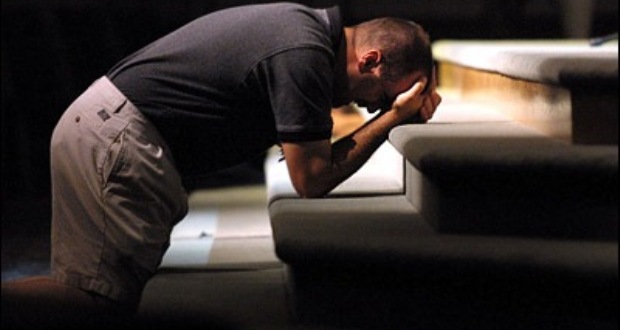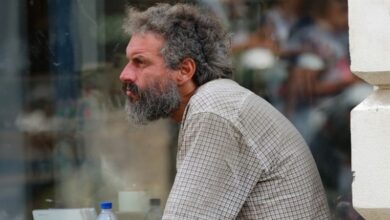Pope Francis Lenten 2014 Message

Below is the text of Pope Francis’ Lenten Message for 2014, which reflects on the theme: “He ended up being poor, so that by his poverty you might end up being rich (cf. 2 Cor. 8:9). It was given by the Pope on December 26th, 2013 on the feast of St. Stephen.
Dear Brothers and Sisters,.
[simpleazon-image align=”right” asin=”1612787673″ locale=”us” height=”500″ src=”http://ecx.images-amazon.com/images/I/41T-pK75zEL.jpg” width=”312″]As Lent draws near, I wish to provide some practical ideas on our path of conversion as individuals and as a community. These ideas are inspired by the words of Saint Paul: “For you understand the grace of our Lord Jesus Christ, that though he was rich, yet for your sake he became poor, so that by his poverty you could end up being rich” (2 Cor 8:9). The Apostle was writing to the Christians of Corinth to urge them to be generous in assisting the faithful in Jerusalem who were in requirement. What do these words of Saint Paul mean for us Christians today? What does this invitation to poverty, a life of evangelical poverty, mean to us today?
Christ’s grace.
First off, it reveals us exactly how God works. He does not reveal himself cloaked in worldly power and wealth but rather in weakness and poverty: “though He was rich, yet for your sake he became poor …”. Christ, the everlasting Son of God, one with the Father in power and magnificence, decided to be poor; he came amongst us and approached to each of us; he reserved his magnificence and emptied himself so that he could be like us in all things (cf. Phil 2:7; Heb 4:15). God’s becoming man is a great mystery! However the reason for all this is his love, a love which is grace, kindness, a desire to draw near, a love which does not think twice to provide itself in sacrifice for the precious. Charity, love, is sharing with the one we love in all things. Love makes us comparable, it produces equality, it breaks down walls and gets rid of distances. God did this with us. Certainly, Jesus “worked with human hands, thought with a human mind, acted by human choice and liked with a human heart. Born of the Virgin Mary, he really became one of us, like us in all things except sin.” (Gaudium et Spes, 22).
By making himself poor, Jesus did not look for poverty for its own sake however, as Saint Paul says “that by his poverty you might become rich”. This is no mere play on words or a catch phrase. Rather, it summarizes God’s logic, the reasoning of love, the logic of the version and the cross. God did not let our redemption drop down from heaven, like someone who provides alms from their abundance out of a sense of altruism and piety. Christ’s love is different! When Jesus entered the waters of the Jordan and was baptized by John the Baptist, he did so not since he was in need of repentance, or conversion; he did it to be amongst people who require forgiveness, among us sinners, and to take upon himself the burden of our sins. In this means he opted to comfort us, to save us, to release us from our anguish. It is striking that the Apostle states that we were set free, not by Christ’s riches but by his poverty. Yet Saint Paul is aware of the “the unsearchable riches of Christ” (Eph 3:8), that he is “heir of all things” (Heb 1:2).
So exactly what is this poverty by which Christ releases us and enhances us? It is his way of enjoying us, his way of being our next-door neighbor, just as the Good Samaritan was next-door neighbor to the man left half dead by the side of the road (cf. Lk 10:25 ff). Exactly what offers us real freedom, true salvation and true joy is the empathy, inflammation and uniformity of his love. Christ’s poverty which improves us is his taking flesh and bearing our weakness and sins as an expression of God’s unlimited grace to us. Christ’s poverty is the greatest treasure of all: Jesus wealth is that of his boundless self-confidence in God the Father, his consistent trust, his desire constantly and just to do the Father’s will and offer glory to him. Jesus is rich in the very same way as a child who feels loved and who loves its mom and dad, without doubting their love and inflammation for an instant. Jesus’ wealth lies in his being the Son; his one-of-a-kind relationship with the Father is the sovereign prerogative of this Messiah who is poor. When Jesus asks us to take up his “yoke which is easy”, he asks us to be enhanced by his “poverty which is rich” and his “splendor which is poor”, to share his filial and fraternal Spirit, to become sons and daughters in the Son, brothers and sisters in the firstborn brother (cf. Rom 8:29).
It has actually been said that the only actual remorse depends on not being a saint (L. Bloy); we might likewise state that there is only one real type of poverty: not living as children of God and brothers and sisters of Christ.
Our witness.
We may think that this “method” of poverty was Jesus’ way, whereas we who follow him can conserve the world with the right type of human resources. This is not the case. In every time and place God continues to save mankind and the world through the poverty of Christ, who makes himself poor in the sacraments, in his word and in his Church, which is a people of the poor. God’s wealth passes not through our wealth, but invariably and exclusively through our personal and communal poverty, enlivened by the Spirit of Christ.
In following our Master, we Christians are called to confront the poverty of our brothers and sisters, to touch it, to make it our own and to take useful actions to relieve it. Destitution is not the same as poverty: destitution is poverty without faith, without support, without hope. There are 3 sorts of destitution: product, moral and spiritual. Product destitution is what is normally called poverty, and affects those living in conditions opposed to human self-respect: those who do not have fundamental rights and requirements such as food, water, hygiene, work and the chance to develop and grow culturally. In response to this destitution, the Church provides her assistance, her diakonia, in meeting these needs and binding these wounds which disfigure the face of humanity. In the poor and castaway we see Christ’s face; by loving and helping the poor, we enjoy and serve Christ. Our efforts are likewise directed to ending violations of human dignity, discrimination and abuse worldwide, for these are so frequently the reason for destitution. When power, luxury and money become idolizers, they take top priority over the need for a reasonable circulation of wealth. Our consciences thus have to be converted to justice, equality, simpleness and sharing.
No less an issue is moral destitution, which consists in slavery to vice and sin. Just how much pain is caused in families since one of their members– frequently a young adult – is addicted to alcohol, medicines, gambling or pornography! How many people no longer see meaning in life or prospects for the future, how many have lost hope! And how many are plunged into this destitution by unjust social conditions, by unemployment, which takes away their dignity as breadwinners, and by lack of equal access to education and health care. In such cases, moral destitution can be considered impending suicide. This type of destitution, which also causes financial ruin, is usually associated with the spiritual destitution which we experience when we turn away from God and decline his love. If we think we do not need God who reaches out to us through Christ, because we think we can make do on our own, we are headed for a fall. God alone can truly save and release us.
The Gospel is the real antidote to spiritual destitution: any place we go, we are called as Christians to proclaim the liberating news that mercy for sins committed is possible, that God is higher than our sinfulness, that he freely loves us at all times and that we were made for communion and eternal life. The Lord asks us to be joyous heralds of this message of mercy and hope! It is delighting to experience the joy of spreading this good news, sharing the treasure entrusted to us, consoling broken hearts and offering hope to our brothers and sisters experiencing darkness. It means following and copying Jesus, who sought the poor and sinners as a shepherd lovingly seeks his lost sheep. In union with Jesus, we can courageously open brand-new paths of evangelization and human promotion
Dear brothers and sisters, may this Lenten season find the whole Church ready to bear witness to all those who live in material, moral and spiritual destitution the Gospel message of the merciful love of God our Father, who is ready to embrace everyone in Christ. We can do this to the degree that we imitate Christ who became poor and enriches us by his poverty. Lent is a fitting time for self-denial; we would do well to ask ourselves what we can give up in order to assist and enrich others by our own poverty. Let us not forget that actual poverty hurts: no self-denial is real without this aspect of penance. I distrust a charity that costs nothing and does not hurt.
May the Holy Spirit, through whom we are “as poor, yet making many rich; as having nothing, and yet possessing everything” (2 Cor 6:10), sustain us in our resolutions and increase our concern and responsibility for human destitution, so that we can become merciful and act with mercy. In expressing this hope, I also pray that each member of the faithful and every Church community will carry out a rewarding Lenten journey. I ask all you to pray for me. May the Lord bless you and Our Lady keep you safe.






